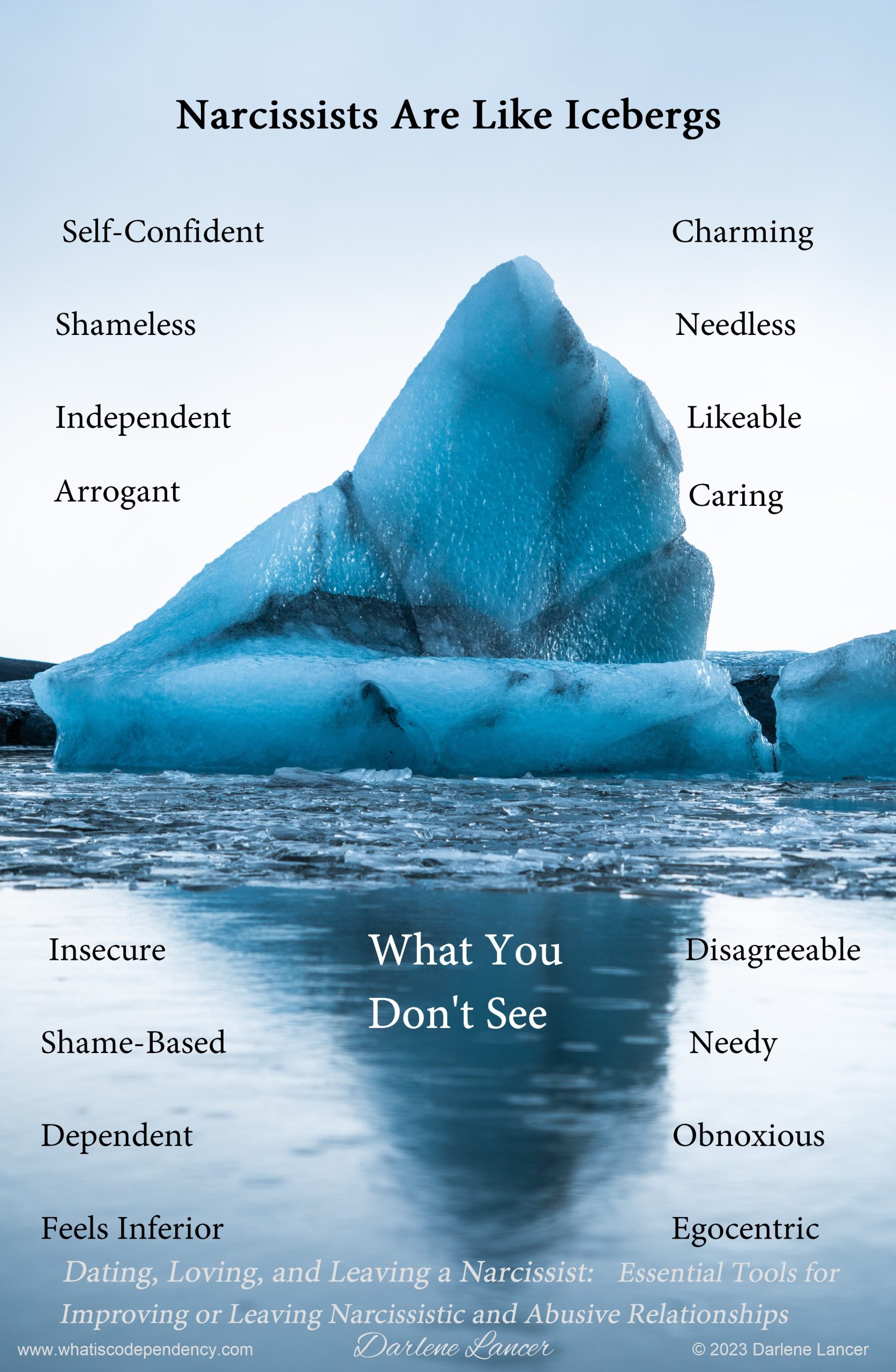 Narcissists have a false self. They’re master illusionists. They behave like a little king or queen — whether bragging or sulking. Their whole personality is a charade crafted to deceive you into believing they are confident, superior, self-sufficient, likable, and caring. In studies, groups of people met with and liked a narcissist, but after 6 more interviews, they discerned the narcissist’s true nature and changed their mind.
Narcissists have a false self. They’re master illusionists. They behave like a little king or queen — whether bragging or sulking. Their whole personality is a charade crafted to deceive you into believing they are confident, superior, self-sufficient, likable, and caring. In studies, groups of people met with and liked a narcissist, but after 6 more interviews, they discerned the narcissist’s true nature and changed their mind.
Their personality is designed to impress and compensate for their hidden shame, exposed when their grandiosity doesn’t match reality. Most of the time, they will alter their perception of reality to protect their false self. An air of self-confidence and superiority inflates narcissists’ opinion of themselves, which shields them against unconscious feelings of inadequacy. It also shifts shame by projecting inferiority onto others. They distort, rationalize, twist facts, and delude themselves to avoid anything that may cause a chink in their armor.
They star in their grandiose fantasies of perfection and greatness, where they’re the most attractive, talented, powerful, smartest, strongest, and wealthiest. All this is to convince themselves and others that they’re superior, not inferior.
They’re not independent at all, but very dependent on what other people think of them or at least that people DO think about them. If you like or admire them, it inflates their ego and they feel more powerful. They manipulate and try to control what others think in order to feel better about themselves, making narcissists codependent on recognition from others.
They’re hypervigilant and extremely sensitive to threats to their image and vigilantly attend to cues that could affect it in the eyes of others. To this end, they’ve refined their display of charm and utilize impression management. They constantly scan their environment to ensure that they have the most attention and power.
They appear friendly and likable, but this ruse is to make you like them and doesn’t mean that they care about you. Beware of dating a narcissist. Some play games and may love bomb you. They may even feign empathy and concern, but you can see through this in the way they treat and talk about others. In fact, research shows that all types of narcissists share the core trait of disagreeableness. Their needs come first and they will provoke arguments to have more power.
When charm fails to work, they use domination. Because they’re insecure and fearful, having power is their primary preoccupation. If you don’t like them, they’re satisfied that you envy or fear them. This strategy requires constant effort.
Thus they prefer hierarchical relationships, workplaces, and groups, like the military, politics, and corporate environment. They avoid egalitarian, intimate, or unfamiliar environments, where they feel insecure, become socially awkward, and often are inappropriate.
When they want to impress, they can act caring, but when it doesn’t suit their personal aims, their self-centered nature becomes evident. Other people’s needs or misfortunes are felt as burdens or inconveniences. Relationships are like business transactions. Their agenda is, “What’s in it for me?”
Although they may create the impression that they don’t need anyone or care about their relationships, in fact, they are extremely needy to receive their “narcissistic supply.” They make endless demands for attention, praise, and accommodations to ensure their comfort. When denied, they feel wounded and often lash out in rage and narcissistic abuse. In intimate relationships, as their abuse escalates, partners and coworkers become passive and submissive to avoid coming under attack and to maintain the relationship. By assuming a submissive role, you establish an unhealthy dynamic in relationships with a narcissist.
Don’t fall for their charade. Talk to supportive friends and professionals. Trust your instincts and get more information on narcissism. On my website, find the Narcissist Quit Kit and Dating, Loving, and Leaving a Narcissist: Essential Tools for Improving or Leaving Narcissistic and Abusive Relationships which provides strategies, steps, and scripts to improve your relationship or end it.
© 2024 Darlene Lancer
